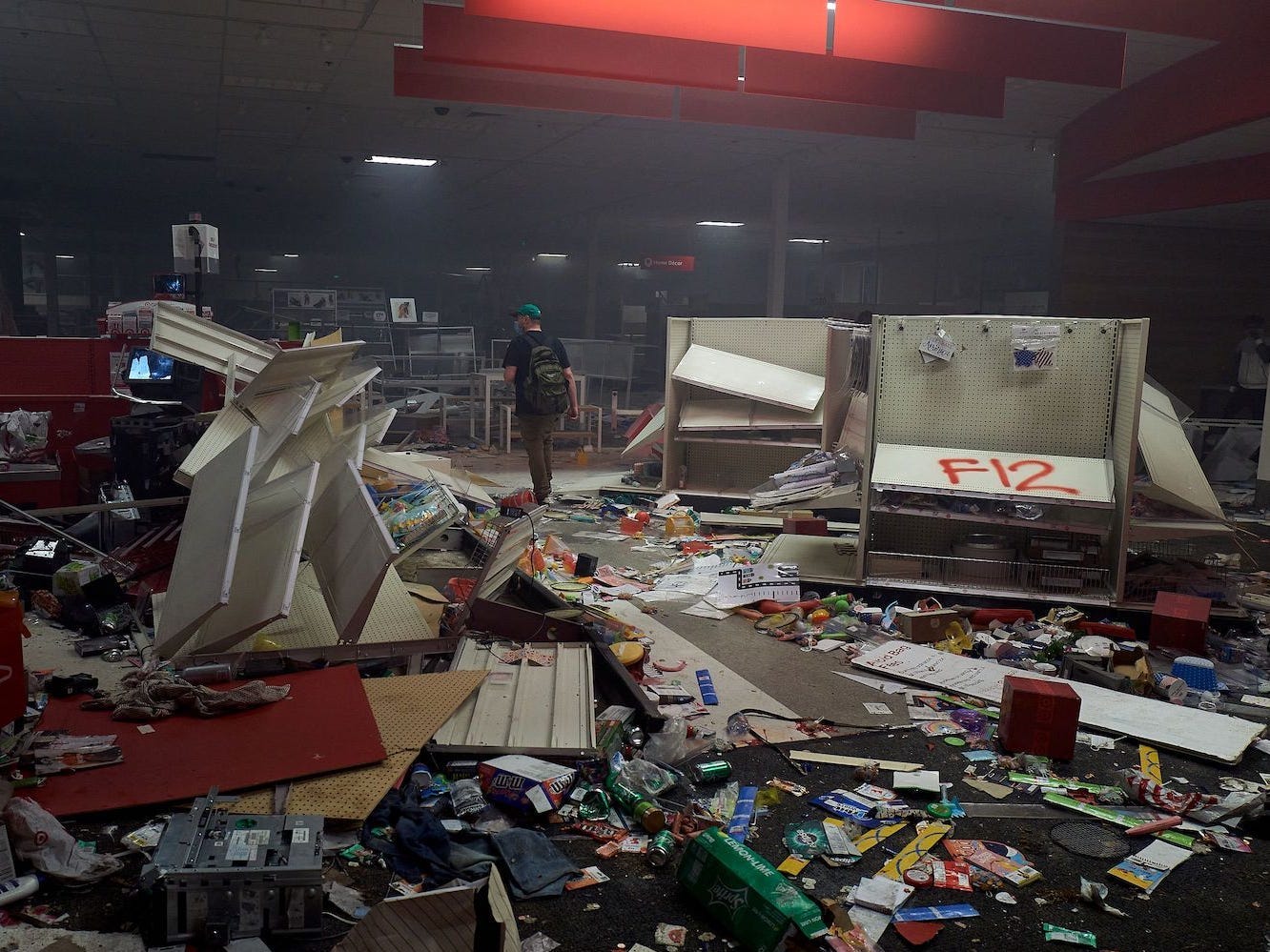
Adam Bettcher/Reuters
- Target will reopen the Minneapolis store in mid-November that was destroyed during racial protests earlier this year, the retailer announced in a blog post on Thursday.
- The rebuild will be “one of the fastest rebuilds of a Target store ever,” according to Target Senior Group Vice President Cephas Williams, Jr., who wrote the blog post.
- “We want the Lake Street community to view this store as a part of itself, not just a place to shop,” Williams wrote.
- The new store will take the community’s needs into account, and feature an expanded food and beverage section as well as a new entrance near the light rail station.
- Visit Business Insider’s homepage for more stories.
The Minneapolis Target store that was destroyed amid civil unrest over the police killing of George Floyd will reopen in mid-November, the company announced in a blog post on Thursday.
In the post, Target Senior Group Vice President Cephas Williams, Jr., who has overseen Target’s Minneapolis-area stores since January, said the company is taking the needs of the community into account during the rebuilding process.
“I recognize that how we rebuild is just as important — if not more so — as when we rebuild,” Williams wrote. “We want the Lake Street community to view this store as a part of itself, not just a place to shop. So we’re listening to the voices of the community and applying what we’re learning, and will continue to do so.”
The Lake Street store is across the street from the Minneapolis Third Police Precinct, which was also burned down during protests in late May, and is just three miles from where police killed George Floyd. Photos of the store’s destruction turned the store into a topic of national conversation in late May and early June.
Williams, who is Black, wrote that he felt “anger, despair, and exhaustion” when George Floyd was killed, and struggled to find purpose in his role at Target. Ultimately, Williams decided the store needed to reopen as soon as possible — with the community’s needs in mind.
"This will be one of the fastest rebuilds of a Target store ever," Williams said.
The reopened store will have an expanded food and beverage section and a new entry next to the light rail station exit. A local Black woman-owned construction company, Noor Companies, is spearheading the rebuilding of the store, and Williams said Target hired diverse subcontractors to help with the project. Williams also outlined Target's financial support for local development organizations and small businesses in the blog post.
A company's political response to looting or destruction of stores during civil unrest is becoming integral to its brand. Public response to looting is starkly divided along political party lines, but often doesn't highlight the effect of looting has on small businesses versus its effect on large companies.
The stakes are much lower for large chains, which are able to absorb the costs of property destruction through insurance and existing capital. Across the country, 55 of Urban Outfitters' stores and 27 of Nordstrom's stores were damaged during unrest and in looting incidents. Yet both companies said that they didn't expect significant losses "after insurance recoveries."
Keeana Barber, the CEO of printing and marketing company WDB Marketing in Chicago, told Business Insider earlier this month that people who are concerned about the impact of looting should be more worried about small businesses.
"These bigger companies, they've got every single thing covered. They might close a couple of stores, but for us, this might be our only storefront we have," Barber said.

